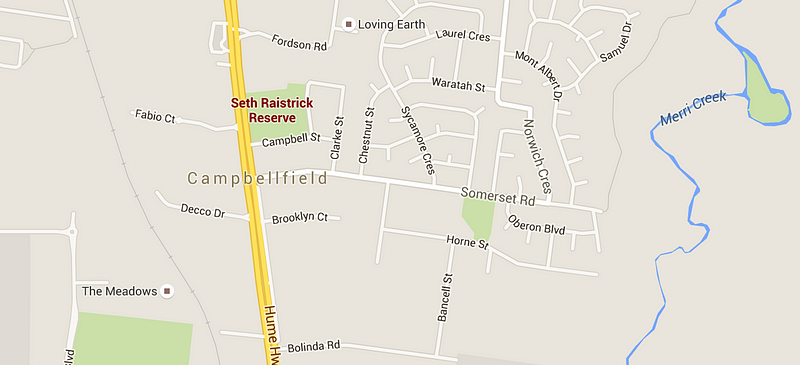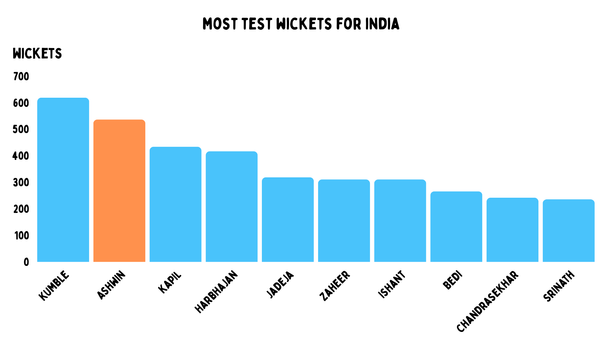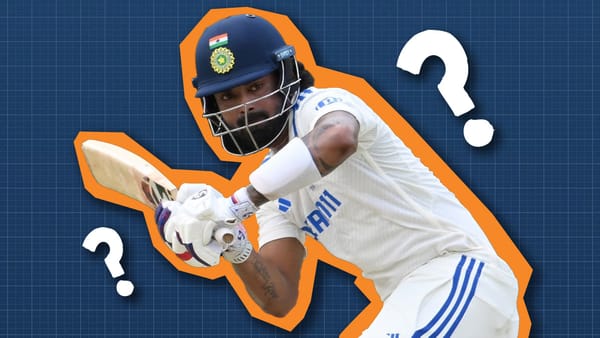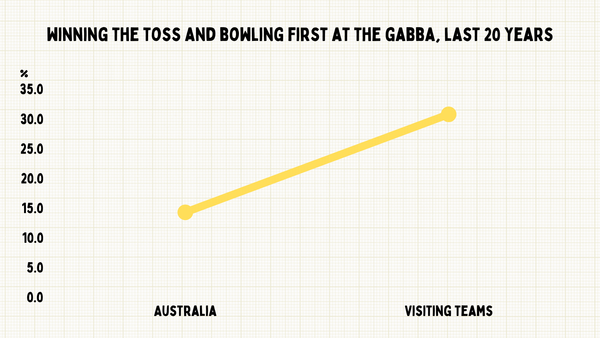The Campbellfield Cricket Club
My story on the cricket club that helped shape my life.

When I was six days old, or 13 days old (depending on which version of the story I was told), I was taken to my first cricket ground.
Seth Raistrick Reserve. Off Sydney Rd. Campbellfield. Victoria. Australia.
The Campbellfield Cricket Club.
The ground had no sightscreens, seemed far bigger than necessary and a concrete pitch with matting on it. It had short straight boundaries and mid-wicket for right-handers that seemed infinite. The fence had no real purpose other than showing you where the boundary was. Or, if you were young enough, you could sit on the middle bar, and put your chin on the top bar as you watched the game. Out towards the virtually unused concrete tennis courts was a bull ants nest, many bull ants nests. And on the boundary, the furthest from Sydney Rd was play equipment that was broken almost all the time.
It was always really hot there. The grass next to the fence was always yellow. Yet the ground itself it was always as green as in any Hollywood film. The clubhouse was a sweaty concrete box with no windows just the odd brick whole for air. The whole place was filled of smells of piss and piss (beer). Every part of it was covered with old bits of kit. It was like an airplane graveyard, except it was full of half-broken pads with that red and blue padding bleeding out, random broken buckles and finger guards from cricket gloves.
The reason I was there at that age was that my dad was opening the bowling that day. Having a newborn son didn’t mean a week off. It was cricket. Nothing got in the way of cricket.
I don’t have many memories of my father playing, a lack of knee cartilage — a lack of two cartilages actually — meant that by the time I was old enough to see what he was doing out there, he wasn’t doing it anymore. I only remember him walking off, often being cheered.
He did make a comeback. Even at an amateur club, that adulation, that need to compete, called him back. But barely being able to walk for three days after 15 over spells he didn’t last long. We did play a couple of games together when he was older, but never at our ground.
At his best, he was a steaming fast bowler with a kick-ass outswinger. Later in his career he was that old guy who would bowl medium pace outswingers for days on end. According to him, and most guys who played against him, his spells went well into the second half of the innings before he had a break. Always on a length you couldn’t quite drive, always just in that channel. When he took hauls they were the kind you always dreamed of. Seven wickets, eight wickets or even one nine-wicket haul. There was even once a hat trick. It started in a semi-final, and ended in a grand final. It’s not technically a hat trick in two games, but he has the trophy and doesn’t like people mentioning the legalities of hat tricks. Dad couldn’t bat, not even a little bit. Yet somehow he managed some ok knocks from his automatic position at number 11.
My mother would often be the scorer. Batsmen would trudge off the ground pissed off that they went out to the fat bearded bloke who was slow as. My mum, who has comedic timing of the driest kind, would then remark how many of the batsmen the fat bearded slow bloke had got out. I never saw her do this, but I’ve heard the stories so many times it’s one of my strongest memories.
Both my uncles played there as well. My uncle Gary was an all rounder with a terrible temper who used a bat that even to this day I doubt I weigh more than. Somehow he had the strength to throw it long distances. As a captain, and fielder, he was a fan of leg slip.
My other uncle, Ross, was a fast bowler. A proper fast bowler. He would often regret that he couldn’t get the ball even slightly off the straight. Yet when he batted, he would often face-up from square leg. Not as a cunning tactic, but where all good slogging tailenders stand.
My auntie Mazz was also on the committee. As was my mum, dad and uncle Gary. At one stage, or maybe at the same time, they were President, Vice-President, Treasurer and Secretary. It was around this time that the club was referred to as Kimberfield.
My cousin Joel played there as well. Just once or twice, although like me, it was probably his first cricket ground, and he spent years there before moving into the country. When he did play there, he bowled the most technically correct legspin ever. The seam was almost always perfect from the first time he bowled, and he could rip a ball past you when in the mood. With the bat, he played a cut shot to every ball. If it was the only shot you ever needed, he could have been great. But he never truly learnt another.
My family played hard. My uncle Gary once stole a run when a fielder threw the ball past the bowler when he was at the top of his mark. My father once ran out a batsman who after every shot would come down the wicket and clean the pitch. I was forced back on the field by my father when all I had was a broken finger. I was swung at more than one time by talented batsman I had sledged.
It was how we played. Things were rough out that way. Campbellfield sounds nice, and gentile. But we were really in Fawkner, right next to Broadmeadows. Melbourne doesn’t have a Bronx, Gaza or Brixton, but ‘Broady’ certainly did its bit.
I once saw a man run at another man with a stump. Once he had been restrained, the game proceeded. Another time an entire team was suspended for threatening, repeatedly threatening the life, of an umpire in a grand final. I had a team once promise to beat the living fuck out of my ‘faggot ass’ because I refused to walk. I was 15, their captain and lead protagonists were in their 40s. Our league was brutal when it wanted to be. The EBKCA.
In Hadfield (just back down Sydney Rd, behind the Fawkner Cemetery) players often played without thigh pads and helmets, and one family there, the Catons, I think, without gloves. They had a reputation for being a side that if you hit one of their players on the head with the bouncer, they’d throw it back to you and smile. If you wore a helmet there, you wouldn’t need your front foot.
Most of the players at Campbellfield were from the Ford factory or had something to do with it. They were Macca, Simmo, Westy, Bluey, Gibbo and Pricey. They were the nickname equivalent of grunts.
In the mid-eighties, a new clubhouse was built. It seemed like a palace compared to the old one. It had a committee room and everything. Plus a hallway that was perfect for hallway cricket. Anyone who played there had to learn how to face the short ball. One of the senior players, called Maxy, also taught us the trick of how to bowl to pretend we were bowling with our right hand when the ball came out of our left hand. It was a rubbish skill, but we loved it. Another player cut down a broken bat and gave it to my parents. It was my first bat.
Saturday night everyone was at the clubrooms. Women, kids and men with huge red stains on their whites. The floors were always sticky from beer. The whole place had a smoke haze. There were darts and a pool table. Plenty of meat to be placed into large bakery bought bread.
Outside there was a playpen, that was, in fact, a children’s jail. They even called it jika jika after a famous part of a jail just down Sydney Rd. It was probably put in because the clubhouse was next to one of the busiest roads in Australia. By the end of the night, tomato sauce from pies and sausages ends on the floor or outside in the pen of jika jika. It looked like a ferocious battle had taken place and not a sausage sizzle gone wrong.
The most important part of the evening was when the captains read out that day’s scores. It was the only time the club went silent. Blokes became heroes. He might have been a truck driver, on the dole, or a former drug addict, during the week. But that night he was the bloke who took a five-for against Craigieburn (fucken Craigieburn) bowling into the wind all day to win the match. The players didn’t play for money, but a five-wicket haul or a half-century would get you some cash. It often didn’t make it past the bar.
The best captains would give you the fall of wickets like they were reading a novel. Every line would lift or deflate the room. The early collapse would be spoken of dramatically like each wicket was still personally hurting the captain. Then there would be a partnership; two great heroes slaying the dragon from Pascoe Vale. The partnership would get bigger and better with every sentence until the wicket ended it. And the groans started. It would almost always be a fluke run out or great catch that did it. “Brucey would have made a hundred, but the bastard stuck out his right hand…” “I’ve never seen a run out like it…”
My dad had a shaking head gesture that he greeted almost all the bad news with. I can still see it now. No matter how bad the total was, there was always a moral victory and a chance that they could win the game next week. They were almost always two-day games, I always liked the news at the end of the first day, as I could imagine great comebacks and acts of courage the following week.
I would sit in the corner, taking a break from the Galaga machine, to listen to all the details. Later (usually after Zoran, a massive shouldered man who once hit a double hundred with mostly sixes, asked me to leave so he erase all my records using only one or two 20 cent coins), I would go off and ask people about their games. I wanted to know everything, why did Daryl wear batting gloves. How come Westy played spin so well. How did Jacko bowl the wrong’un. Some ignored me. Some told me everything. Sometimes I would just listen to conversations. I learnt every swearword. I learnt every cricket trope. Those Saturday nights, for over ten straight years, I learnt cricket. I did this for ten years straight.
Despite living on the other end of Cooper St in Epping, I played at Campbellfield, because it was my family club. I don’t even remember being asked if I wanted to play at one of my local clubs. It was only about 15 minutes to the ground. Cooper St was a one-lane road with nothing around it at the end of Melbourne. It was basically a country road on the outskirts of an industrial area. We would pass the private tip. The public tip. A quarry of some kind. The Istrian (Australian Italian) club. Then turn left onto Sydney Road, at the Hume Highway bit. Then pass a couple of factories, one or two car yards, the Ford Factory and some houses.
That was about all you saw on the drive.
Next to the ground was a historical church with huge trees that the big hitters would smash the ball into. For whatever reason, the church’s grass never seemed to be cut, and finding balls in there was impossible. I think I only ever went in the church once. To attend the funeral of my dad’s friend Fuzz. He was a butcher. I think he provided meat platters at times.
My career started when I was six fielding for the under 12s. I was so annoyed no one would let me play for real. When I was seven I was to play my first game of cricket. At my first training session, I was hit in the balls without wearing a box by a composite cricket ball with a painted on seam. It was the last time I didn’t wear a box. I also never really trusted non-leather balls again.
My dad was the coach. As he was of all the junior teams I played in for the next eight years. Fast bowlers were to keep a high arm action with a good seam position. Batsmen were to play on the front foot and forget about playing the hook shot. Spinners were encouraged, pushed and almost forced to bowl even when they didn’t want to. We played tough, attacking cricket, everyone got a go, but they were expected to give it their best. He was tough on everyone; he was extremely tough on me. We loved playing for him. Even the kids who were afraid of him. Which was probably most of them. In eight years we made three grand finals and won two.
Even when dad was well past forty, he would pick up an old cricket ball with no seam or shine, and would hoop it past me in the nets. It would hoop past all of them. None of them had ever seen him really play, but all just automatically gave him godlike respect.
I played with Dom, Adrian, Sam, Tim, Ben, Andrew, Muhammad, Sammy, Anthony, Nirenda, Neil, Clint, Korkilla and Kevin to name a few. They came from all sorts of backgrounds. Australian, Irish, Italian, Lebanese, Bangladeshi, Indian, Greek and Sri Lankan.
They renamed the medal for the best junior player after my father. Some of the guys he coached still play there, over 20 years later.
We were so much a part of the club that my dad would even take me down on Sundays to help clean the club with him. I would be given one task to do. And I’d generally do it badly. Mostly I would watch the McDonald’s cup games on the TV. It was only domestic cricket, but I didn’t know that, and I was my job to tell everyone there what the scores were, Western Australia vs Tasmania was on TV, “Moody is 70”, “How is he batting”, “He’s smashing them”, “OK”.
Kicker was the mainstay. He seemed 200 years old. He was hard as nails and could put a bat grip on blindfolded and half cut. I’m not sure if he ever ran the club, but if you’ve ever played at a real cricket club, you know the sort of guy I was talking about. No matter how close he was to my family (he coined the term Kimberfield) he would berate me for my footwork, and refused to accept I ever took my batting seriously enough. The day I had my first real good innings in senior cricket, he walked up, put his hand on my shoulder, and asked me if I wanted a coke. It meant more than the entire club telling me I’d done well.
There was no proof he was any good at cricket, but he could talk a good game. He was like our club’s yoda. His face was literally made of rubber, and he even talked in weird sentence structures. He drilled catchphrases into you. When I first started playing senior cricket, I’d be a fine leg during my spell. Kicker would walk up and lean on the fence next to me. I learnt more about spin from the chats as he learnt on the fence than I ever did from anyone else. He lived on the corner of Campbell St at the base of the ground. I played with his grandson. His real name was Alf Littlejohn. It takes a special club to give a nickname to a man that well named.
There was also the Pres, Tony Panel. And so many others like Maurie who just worked their ass off to make it a successful club. They broke every alcohol and gambling rule there was. You did whatever you could to make money from the club, and hoped you could talk the cops around if they turned up. I think my dad was arrested once for selling beer there without a licesnse. Although, I doubt that stopped them doing it.
They made the club run through raffles, gambling nights, cup days, presentation nights, barrels of beer and endless dim sims (friend and steamed) and at one stage a soft-serve vanilla machine that never ever seemed to work.
I had some great success there. And some pretty ordinary failures. I even saw my first ever porn there. As someone had stuffed the pages under the synthetic wickets in the nets that had replaced the old matting. The next week I rushed back there to see some more. But there was nothing. The week after it was gay porn. I really didn’t enjoy that the same way.
When I started playing juniors and seniors at the same time. We would rush back to the club and I would eat 10 dim sims, all steamed, and drink a couple of cans of coke for hydration. My biggest concern was getting soya sauce on my whites. Then I’d be off to the next game. As the years went by I ate McDonalds between the games. I suppose, looking back, it was when the Americanisation of the Australian suburbs was taking over.
We won the grand final of the Under 16s in my last game. The morning of that last day, I was not out on 60 odd, and Mick Gibbs, a club legend, and Trev, a really nice clubman, took me aside in the kitchen. They told me in no uncertain terms that I wasn’t a good batsman and I had to make this hundred as I may never get another chance. And anything less than a hundred would give the opposition a decent chance of victory.
It was the sort of frank and honest discussions I’d be hearing, or part of, since I was knee-high.
I made 91 that morning at Craigieburn (fuck Craigieburn, the club and suburb). But we won the game.
Mick and Trev could be honest with me, because they were part of my family. On the night of our last junior presentations, I gave a speech about how much I loved the club. I also mentioned that the seniors should spend more time helping out the juniors. That they had taken us for granted and that my dad had done far too much work. It was the same tough love that Mick and Trev gave me.
For the first 16 years of my life, Seth Raistrick Reserve was as much my home as my actual home was. My favourite possession was a CCC badge that was sewn onto a floppy hat for me. It was green and gold, and had CCC on the stumps. It wasn’t the same logo that they’d had since the club started in the late 1800s. But to me it was the only logo.
I’ve only played for two other clubs since I was 16. It’s now been more than 16 years since I played there.
Things changed and I never got to go back to Campbellfield like I always wanted too. I had this dream when I was a kid that I would play at another club for 15 years, be successfully at a higher level, and then come back to use that knowledge to help the club. The area and club has changed too. Kicker died. I’m sure many others have too. The Ford factory is smaller than before, and that little one lane country road at the end of Melbourne, Cooper st, still connects my house to my club. But it now the tips and Istrian club have company with a hospital, market, shopping centre and a ring road on it. It is more than one lane and no longer the end of Melbourne.
The whole place has changed, and the club as well. I was the last Kimber to play there. It is no longer Kimberfield.
If you ever drive out of Melbourne on Sydney Rd. Past Fawkner Cemetery, beyond the Ring Road exits, past the endless car yards and just before the 24 hours roadhouse McDonald’s on the left, there is an old brown single-story 80s building. If you go too far, you’ll end up in Craigieburn, and you don’t want that. Behind that shabby looking brown clubhouse is a cricket ground. If you do drive that way, you’ve probably past it heaps of time without ever looking twice. It doesn’t look like much.
For 16 years it was everything to me. And it still is.


